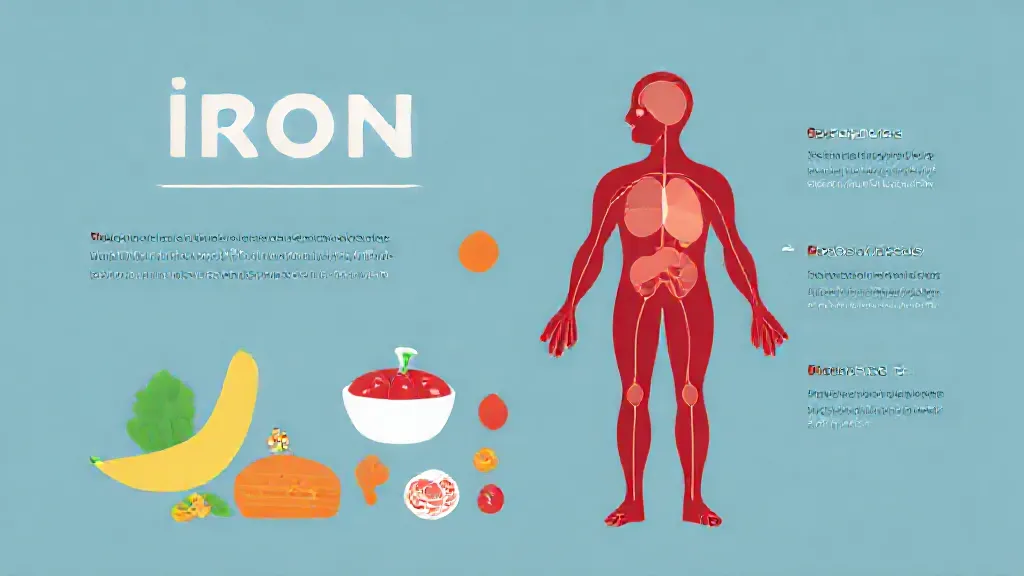Iron is an essential mineral that plays a critical role in various bodily functions, including the production of hemoglobin, which is necessary for transporting oxygen in the blood. When the body lacks iron, it can lead to a condition known as iron deficiency anemia, which can have significant health implications. This article delves into the causes, symptoms, and consequences of iron deficiency, as well as potential solutions for those affected.
The Role of Iron in the Body
Iron is vital for several physiological processes. It is a key component of hemoglobin, the protein in red blood cells that binds to oxygen and carries it from the lungs to the rest of the body. Additionally, iron is involved in the production of myoglobin, which stores oxygen in muscles, and is essential for energy production and metabolism.
Without adequate iron, the body struggles to perform these functions efficiently, leading to various health issues.
Causes of Iron Deficiency
Iron deficiency can arise from several factors, including inadequate dietary intake, increased physiological demands, and certain medical conditions. A diet low in iron-rich foods such as red meat, poultry, seafood, beans, and fortified cereals can contribute to deficiency.
Additionally, women are at higher risk due to menstruation and pregnancy, which increase iron requirements. Gastrointestinal disorders, such as celiac disease or inflammatory bowel disease, can also impair iron absorption, leading to deficiency.
Recognizing the Symptoms of Iron Deficiency
Symptoms of iron deficiency can vary from mild to severe and may include fatigue, weakness, pale skin, shortness of breath, and dizziness.
Individuals may also experience headaches, cold hands and feet, brittle nails, and unusual cravings for non-nutritive substances like ice or dirt, a condition known as pica. Recognizing these symptoms early is crucial for preventing more severe health complications.
Consequences of Untreated Iron Deficiency
If left untreated, iron deficiency can lead to more serious health issues, including severe anemia, which can result in heart problems due to the heart having to work harder to pump oxygen-rich blood throughout the body.
Chronic iron deficiency can also impair cognitive function and lead to developmental delays in children. Furthermore, it can compromise the immune system, increasing susceptibility to infections.
Diagnosis and Testing for Iron Deficiency
Diagnosis of iron deficiency typically involves a combination of blood tests, including complete blood count (CBC), serum ferritin, and serum iron tests.
These tests help determine the levels of hemoglobin, the amount of stored iron in the body, and the availability of iron for use. Healthcare providers may also consider dietary habits and symptoms when diagnosing iron deficiency.
Treatment Options for Iron Deficiency
Treatment for iron deficiency often begins with dietary changes to include more iron-rich foods.
In some cases, iron supplements may be prescribed to restore iron levels more quickly. It's important to note that iron supplements should only be taken under medical supervision, as excessive iron can lead to toxicity. Additionally, addressing any underlying conditions that contribute to deficiency is crucial for long-term management.
Preventive Measures and Lifestyle Changes
To prevent iron deficiency, individuals should focus on a balanced diet that includes a variety of iron sources. Pairing iron-rich foods with vitamin C-rich foods, such as citrus fruits, can enhance iron absorption. Regular health check-ups and blood tests can help monitor iron levels, especially for those at higher risk, such as pregnant women, vegetarians, and individuals with chronic health conditions.
Conclusion: The Importance of Iron for Health
In conclusion, iron is a vital nutrient necessary for maintaining overall health and well-being. Understanding the implications of iron deficiency, recognizing its symptoms, and seeking appropriate treatment can significantly improve quality of life. By making informed dietary choices and being proactive about health, individuals can prevent iron deficiency and its associated complications.
